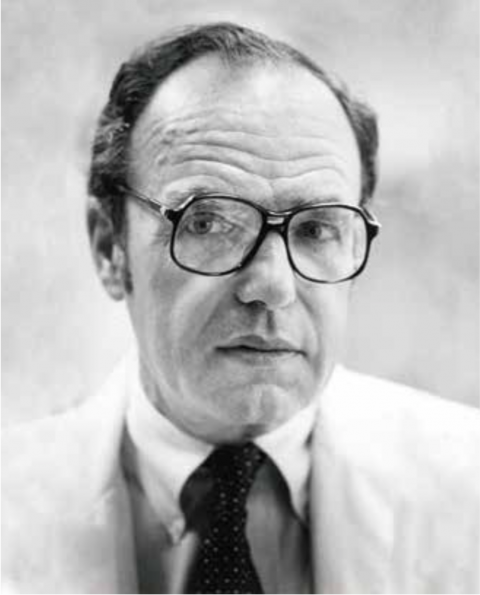Columbia College | Columbia University in the City of New York
Dr. Paul A. Marks ’46, PS’49, Cancer Researcher and Pioneering Hospital Leader

Marks was born on August 16, 1926, in Mahanoy City, Pa. He attended Samuel J. Tilden H.S. in Brooklyn, where a teacher persuaded him to apply to Columbia. Marks received a full scholarship and proceeded to P&S for an M.D.
Marks’s research career spanned more than 50 years. In the late 1950s, he was the first to identify a genetic defect as a cause of hemolytic anemia, a disorder in which red blood cells are destroyed faster than they can be made. In the 1960s, he identi- fied a genetic defect as the basis of thalassemias, a sometimes-fatal group of anemias. Marks is also credited as one of the pioneers of epigenetics: His work helped to define the way blood cells can become cancerous, and he helped develop a pioneering approach to treating cancer called “cytodifferentiation,” in which abnormal cells are coaxed into becoming normal again.
After completing postdoctoral research at the National Institutes of Health and the Institut Pasteur in France, Marks joined the Columbia faculty. He was the dean of P&S from 1970 to 1973 and VP for medical sciences from 1973 to 1980, when he joined what was then Memorial Hospital. Marks was president and CEO of MSK until 1999, presiding over the unification of Memorial Hos- pital and Sloan Kettering Institute; he set the institution — and the field of oncology — on a more scientific course. Marks encouraged the creation of integrated medical teams to coordinate patient care, created a research and treatment center devoted to breast cancer and established the first center devoted to cancer pain management.
Marks also revamped MSK’s staff by instituting a tenure system with a tough review process; dozens of scientists left between 1982 and 1986. He was known, however, for a sharp eye in recruiting talent. Marks gave researchers freedom to explore, telling them, “You will not be told to work on cancer — we know that what you work on will be relevant to cancer ultimately.” However, he said: “We will expect to see spectacular research.”
Marks wrote a memoir, On the Cancer Frontier: One Man, One Disease, and a Medical Revolution (2014), and published more than 400 scientific articles. He was the editor-in-chief of Journal of Clinical Investigation and Blood, and served as a member
of presidential panels on cancer and biomedical research. Marks was a member of the National Academy of Sciences and the National Academy of Medicine, and a fellow of the American Academy of Arts and Sciences. In 1991, President George H.W. Bush awarded him a National Medal of Science in the Biological Sciences category. Marks was presented a John Jay Award for distinguished professional achievement in 1996, and Columbia Engineering presented him its Michael Pupin Medal in 2016.
He is survived by his wife, Joan; children, Andrew, Matthew and Elizabeth GSAS’84; and several grandchildren.
Read more about Marks in The New York Times and The Cancer Letter
Issue Contents
Published three times a year by Columbia College for alumni, students, faculty, parents and friends.
Columbia Alumni Center
622 W. 113th St., MC 4530, 6th Fl.
New York, NY 10025
212-851-7852
cct@columbia.edu
Columbia Alumni Center
622 W. 113th St., MC 4530, 4th Fl.
New York, NY 10025
212-851-7488
ccalumni@columbia.edu

